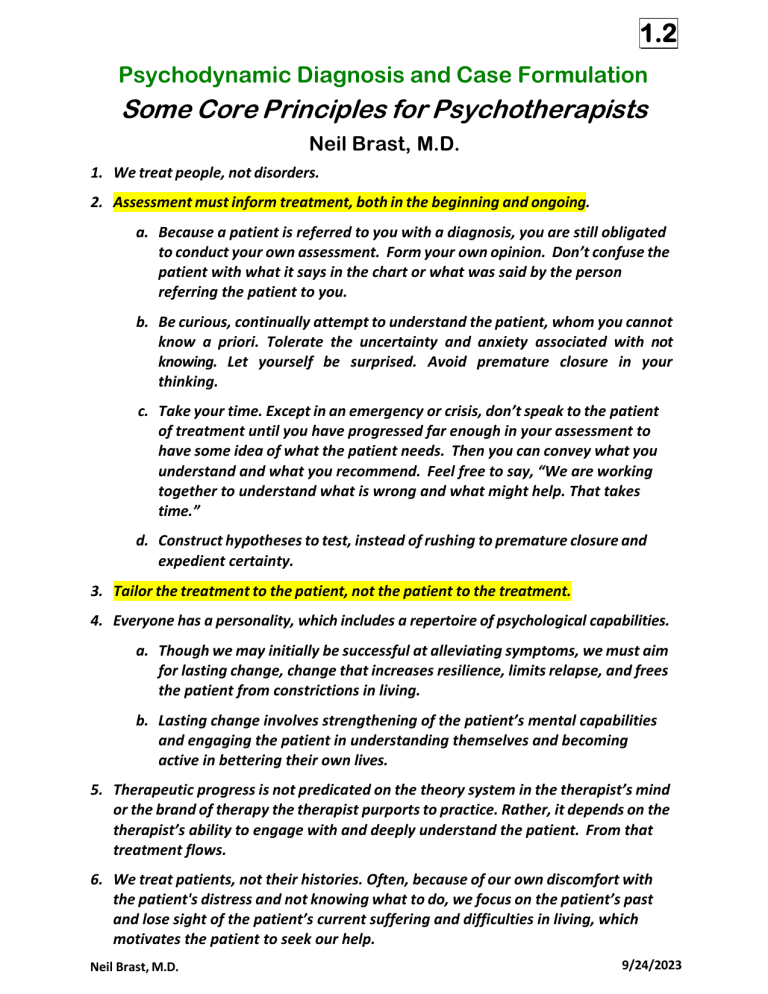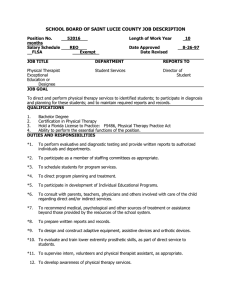
1.2 Psychodynamic Diagnosis and Case Formulation Some Core Principles for Psychotherapists Neil Brast, M.D. 1. We treat people, not disorders. 2. Assessment must inform treatment, both in the beginning and ongoing. a. Because a patient is referred to you with a diagnosis, you are still obligated to conduct your own assessment. Form your own opinion. Don’t confuse the patient with what it says in the chart or what was said by the person referring the patient to you. b. Be curious, continually attempt to understand the patient, whom you cannot know a priori. Tolerate the uncertainty and anxiety associated with not knowing. Let yourself be surprised. Avoid premature closure in your thinking. c. Take your time. Except in an emergency or crisis, don’t speak to the patient of treatment until you have progressed far enough in your assessment to have some idea of what the patient needs. Then you can convey what you understand and what you recommend. Feel free to say, “We are working together to understand what is wrong and what might help. That takes time.” d. Construct hypotheses to test, instead of rushing to premature closure and expedient certainty. 3. Tailor the treatment to the patient, not the patient to the treatment. 4. Everyone has a personality, which includes a repertoire of psychological capabilities. a. Though we may initially be successful at alleviating symptoms, we must aim for lasting change, change that increases resilience, limits relapse, and frees the patient from constrictions in living. b. Lasting change involves strengthening of the patient’s mental capabilities and engaging the patient in understanding themselves and becoming active in bettering their own lives. 5. Therapeutic progress is not predicated on the theory system in the therapist’s mind or the brand of therapy the therapist purports to practice. Rather, it depends on the therapist’s ability to engage with and deeply understand the patient. From that treatment flows. 6. We treat patients, not their histories. Often, because of our own discomfort with the patient's distress and not knowing what to do, we focus on the patient’s past and lose sight of the patient’s current suffering and difficulties in living, which motivates the patient to seek our help. Neil Brast, M.D. 9/24/2023

